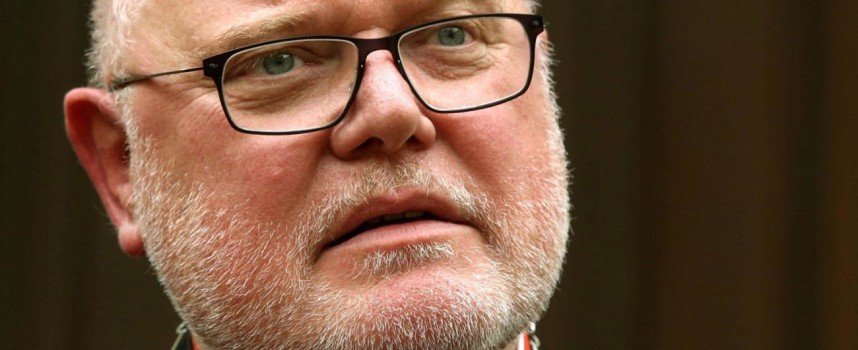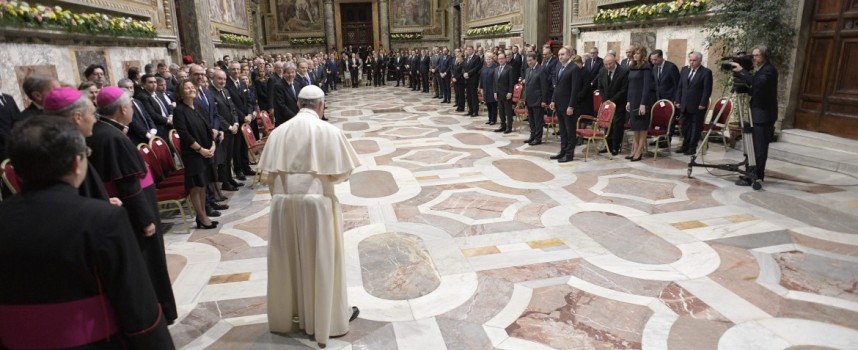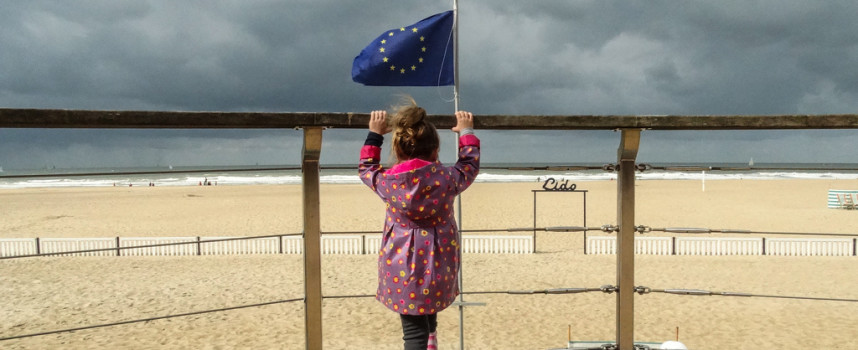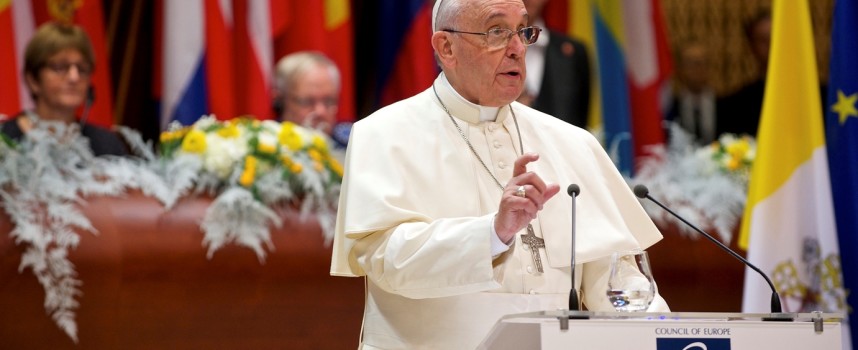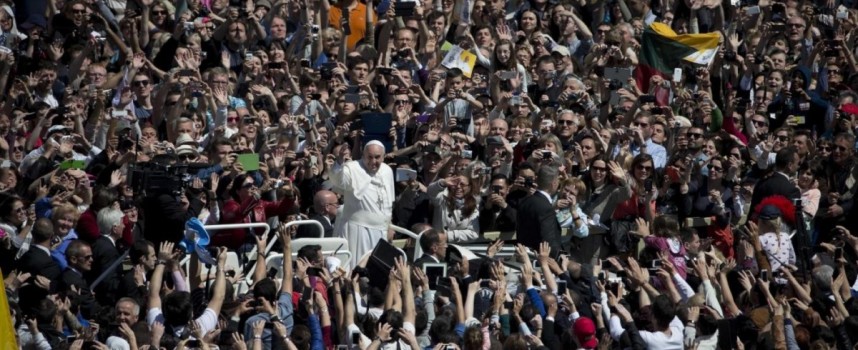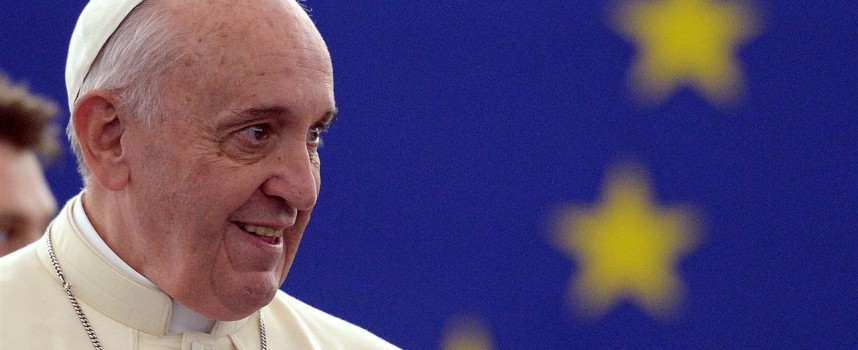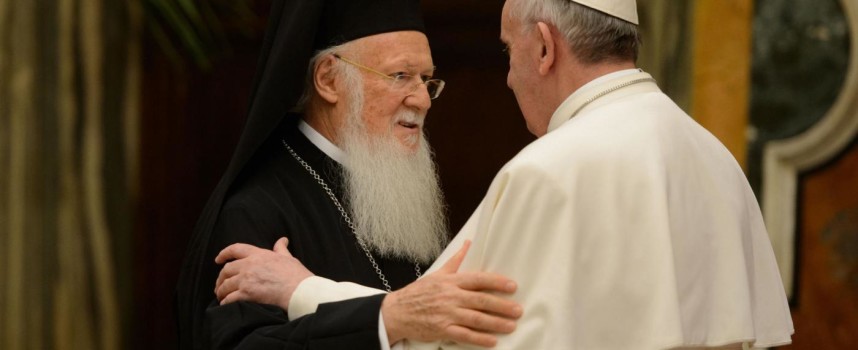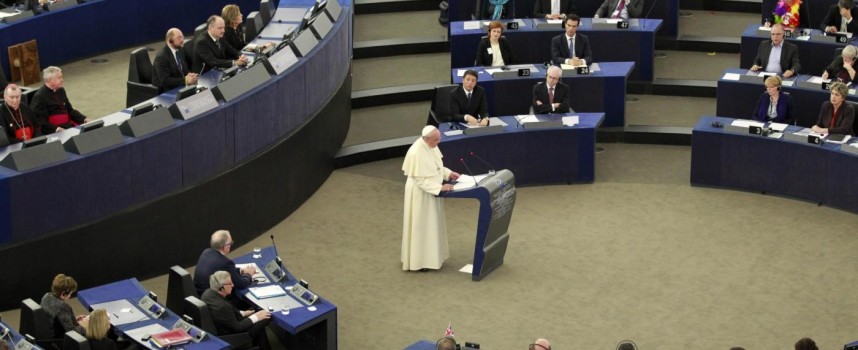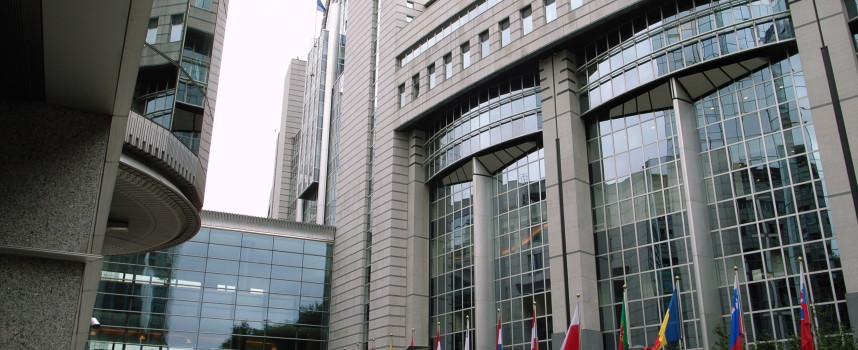Pope Francis and Europe
EN | IT – Card. Reinhard Marx, president of Comece (Commission of the Bishops’ Conferences of the European Community) released at Vatican Radio this comment about Pope Francis’ speech on the 60th anniversary of the Treaty of Rome (25 March, 2017).
EN | IT – Following the meeting with the European leaders in the Vatican, during which Pope Francis delivered a strong message for Europe, the Pontiff visited one of its most vital and emblematic centers. The Pope’s journey in the Archdiocese of Milan was brief but packed with events. The occasion, the 60th anniversary of the treaties that marked the beginning of the process of european unification, came in a time of crisis, of fear and bewilderment towards new and disturbing, though predictable, scenarios.
EN | IT – The pope, on receiving the Charlemagne Prize at the Vatican, invited to update the idea of Europe to reach “a Europe capable of giving birth to a new humanism based on three capacities: the capacity to integrate, the capacity for dialogue and the capacity to generate”. Right here emerges the historical task of European Christians who are called to mark the difference between a realism that is not subject to complexity but with courage governs it and a pessimism that surrenders to difficulties, often becoming prisoner of it out of fear.
EN | IT | FR | DE – The 2016 Charlemagne Prize has been awarded to Pope Francis. Interviewed by a group of French Catholics, he gives his private views on his vision of Europe Europe.
EN | IT | FR| |DE | ES – This is the Pope Francis’ message to the faithful on Easter Sunday, in remarks at the traditional Urbi et Orbi blessing. (St Peter’s Basilica, 27 march 2016)
EN | IT | FR | DE – Since the visit of John-Paul II in 1988, Europe and the European Parliament have definitely changed. The Iron Curtain has fallen, the European Union has enlarged, but the world has become more complex and disturbing. Europe has lost its weighty influence in a world which is no longer centred upon Europe. This Europe appears to have become “elderly and haggard”, not only demographically but above all psychologically and spiritually: “The great ideas which once inspired Europe seem to have lost their attraction”. Hence the doubt and mistrust of European citizens.
EN | IT – Thank you, Pope Francis, for the gift of Your visit to Turkey, where you have met not only a hard-working and generous people, but also a living Christian community. Although the local Catholic community is a minority, it is aware of belonging to a larger reality from which it draws courage, strength, and hope to face the daily hardship of Christian witness…
EN | FR | IT – “Where is your strength? Where is your idealism that inspired and ennobled your history? Where is your spirit of curiosity and enterprise?”. The questions are those of a Pope worried for the future of Europe, who spoke Tuesday, November 25 from Strasbourg to all peoples represented at the European Parliament and the Council of Europe. As brief as intense, this strictly protocoled visit, dedicated solely to the European institutions, allowed the Pope to present his vision of a Europe which has become a “grandmother”, “ fearful and self-absorbed,” that he, again, judged “weary”. He urged it to take a hold of herself by finding anew a Christian approach to the human person “endowed with transcendent dignity”.
EN | IT – A whirlwind visit, that very busy “off day”, as Francis himself called it, as he was flying from Rome to Strasbourg. But, in just four hours in the European Palaces, the Pontiff managed once again to stir atheists and Catholics alike or plain curious people, and to send “another message of hope and encouragement”. The 360-degree issues tackled by Francis are not new, some had already been addressed by John Paul II in the speech he gave in Strasbourg in 1988, but hearing them again from a Latin American Pope (“but of European descent” as the President of the European Parliament Martin Schultz called him), right in the midst of the Parliamentary Assembly, which occasionally passes amendments that are against Christian morality, such as the gender theory, is impressive.
EN | IT – Europe looks at Pope Francis, who tomorrow will speak to the European Parliament in Strasbourg and then also in front of the Council of Europe. Already before the event there has been much speculation about the topics that the Pope will address. Cardinal Secretary of State, Pietro Parolin, hinted that for Pope Francis issues of solidarity are primarily important: with the unemployed young, with single mothers, with the elderly and the disabled, but especially with those people who are looking for “new opportunities outside their country”, that is the refugees who were already the subject of the first papal visit to Lampedusa.

